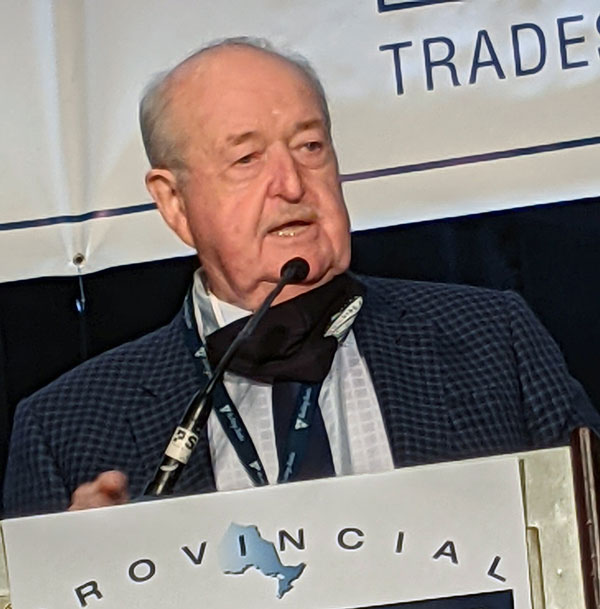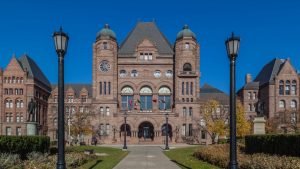Former Ontario Building Trades business manager Pat Dillon said he’s relieved the Ontario Court of Appeal has ruled the Doug Ford government’s spending limit on third parties unconstitutional, calling the decision a vindication after a long court battle.
“It’s been a long and expensive battle, but it’s well worth the effort,” said Dillon a few days after the March 6 decision by that ruled Bill 307 affecting third-party advocacy prior to elections was unconstitutional.
“Limiting free speech for workers is just not acceptable.”
The Court of Appeal’s decision ruled the campaign spending restrictions that targeted unions and other non-party groups infringed on the Charter right to meaningful participation in the electoral process.
The 2021 election law imposed a $600,000 spending limit on third-party groups that applied for 12 months in advance of the province’s official election campaign period.
The legislation doubled the period originally imposed by the previous Kathleen Wynne government.

The Working Families Coalition, with Dillon as its spokesperson, originally challenged the Wynne legislation.
In December 2021, an Ontario Superior Court judge ruled that the Ford government’s additional restrictions on pre-campaign spending violated free speech but that the law would stand because of the government’s invocation of the notwithstanding clause.
The panel overturned that decision, stating Bill 307 infringed on the Charter right to meaningful participation in the electoral process.
The three-person panel stated voting rights are among the few Charter rights that cannot be suspended by a government using the notwithstanding clause.
The panel ruled, “because the challenged spending restrictions were not carefully tailored, and there is no finding that they would permit a modest informational campaign, they overly restrict the informational component of the right to vote.”
The panel gave the Conservative government 12 months to refashion the legislation. The government immediately said it would appeal.
Dillon was named as an individual appellant along with the Working Families Coalition, three teachers unions and three other individuals.
Dillon stressed he was not representing his former employer.
He noted the legislation not only suppressed third-party advocacy but also boosted public subsidies to all political parties, which he said are happily accepting the support.
Various construction unions have supported Working Families since its original inception to confront the Mike Harris government but Dillon refrained from discussing the current level of construction union participation.
He said the next step the unions that were involved in the most recent court appeal would be to meet in a few months to determine the next course of action, given the government’s promised appeal.
“The decision going forward will be made by the collective of unions that have been involved over the years and who wants to continue and you may have new unions that want to join, we don’t know.”
Dillon previously described one of the heydays of Working Families as being its 2014 campaign against then PC leader Tim Hudak’s right-to-work stance and admission that 100,000 provincial employees might be let go to strengthen government finances.
“They don’t want to talk about a certain policy during the election period so they get the spin doctors to write it up so the general public could misread what the intent of that potential policy would be.
“Working Families would hire specialists to unpack that.”
Dillon, who retired from the Building Trades in 2021, said he has not decided if he will continue his advocacy with Working Families.
“No matter whether I’m involved or not, I’ll continue to believe in it, for sure.”
Follow the author on Twitter @DonWall_DCN.











Recent Comments
comments for this post are closed